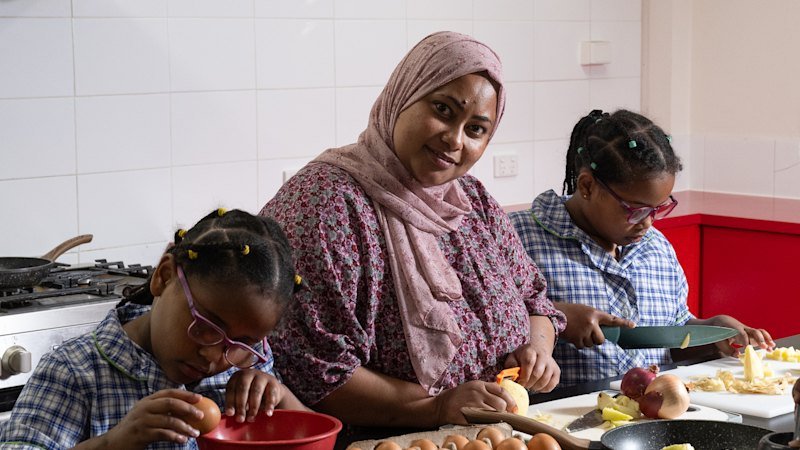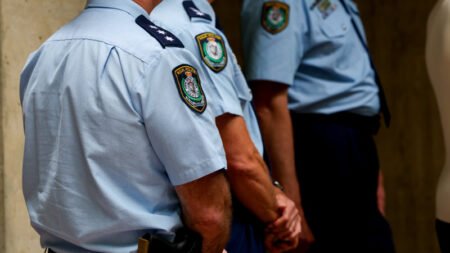She did a year-long cooking class one day a week, starting from 9.30am and finishing at 2.30pm.
“The mothers, they don’t need to go home and come back, they can just pick up their kids,” she said.
Carlton said the impact of the initiative had been overwhelmingly positive, especially with families re-engaging back into the school community.
According to the school’s parent opinion survey, Debney Meadows had a 94 per cent positive response rate for community engagement. In the Attitudes To School Survey, 97 per cent of students said they felt a strong sense of inclusion. There was also a significant increase in the sense of connectedness from 64 per cent in 2023 to 91 per cent in 2024.
“I think it really does reinforce the importance of creating opportunities for our families to connect, and it really fosters a supportive and inclusive school environment,” Carlton said.
“It’s a very, very big difference from what it was four years ago. We’re not just a school for children, we’re a school for the community.”
Kensington Community House education co-ordinator Freyja Dixon said when the hub launched two years ago, parents and families didn’t feel comfortable to come into the school due to a range of factors.
“By trying to build that engagement in their children’s school, you see the overall holistic impact that can have in terms of their children’s learning,” she said.
Dixon, who helped secure a four-year grant for the hub from the William Buckland Foundation, said people who had done the business course had gone on to get their sole trader licence and had their own stalls at a weekly Saturday morning fruit and vegetable market at the school, which includes a Somali sambusa stall.
Dixon said some students faced exceptional challenges, so creating things like the homework club and engaging the whole family helped.
“We have a number of families that would have been living across three different places, so they’re essentially homeless,” she said.
“It’s so tricky to learn when you’re coming from that environment.”
The hub links families with essential services like NDIS and maternal and child health services, helps fill out forms and understand school procedures, and has helped with housing issues, referrals for health, legal aid and sports grants. Of those taking courses, 22 per cent never went to school. The hub has been so successful it won the 2024 Learn Local Awards, and as of last year 53 learners had enrolled in pre-accredited training and 16 completed linked accredited training.
Carlton said the level of engagement the school had with the community also promoted trust, and the success reinforced the importance of creating opportunities for their families to connect.
“It really fosters a supportive and inclusive school environment,” Carlton said.
“We need to find out what the needs are of our community, and based on what the needs are of the community is where we then create the supports and put them in place.
“We’re like a big family.”
Worku said parents were even welcome at school assemblies now, and they often had to drag in extra chairs to the space.
“My kids … they love school and especially Debney Meadows now. I want people to come and see it. Debney Meadows is the place to be.”
Read the full article here
















